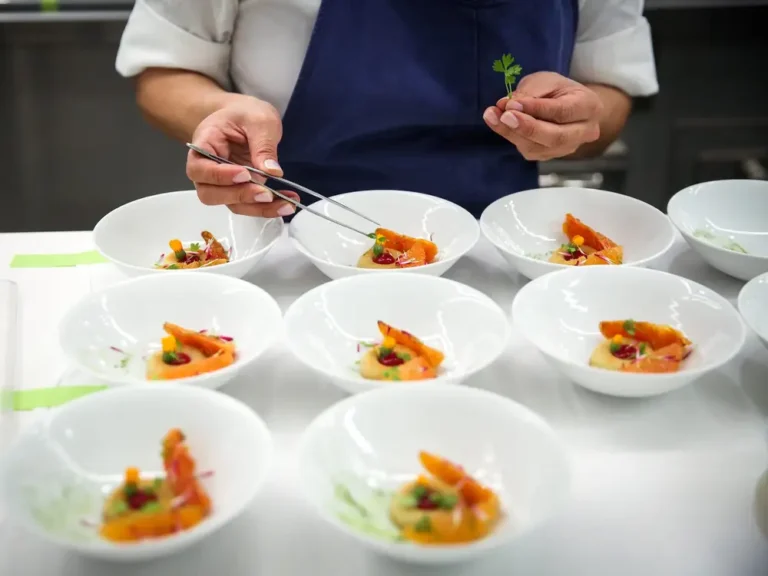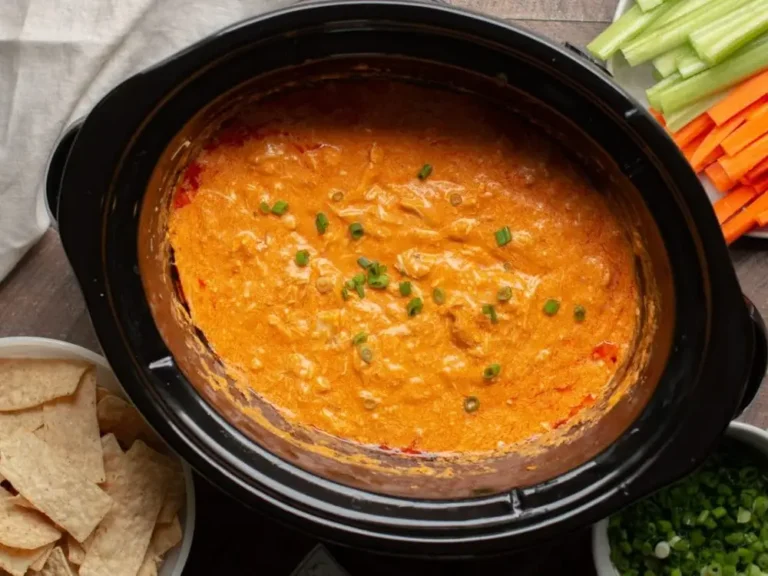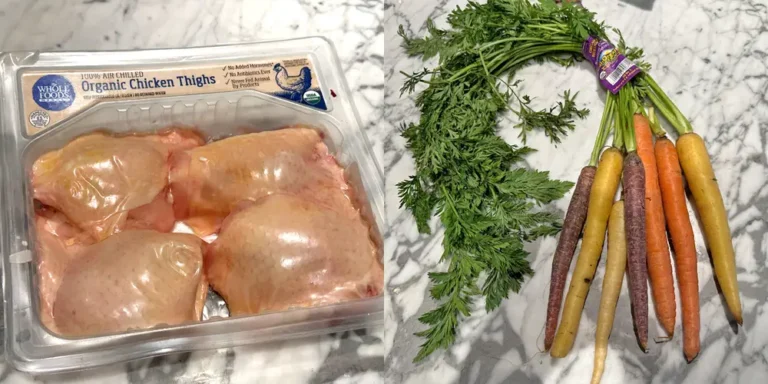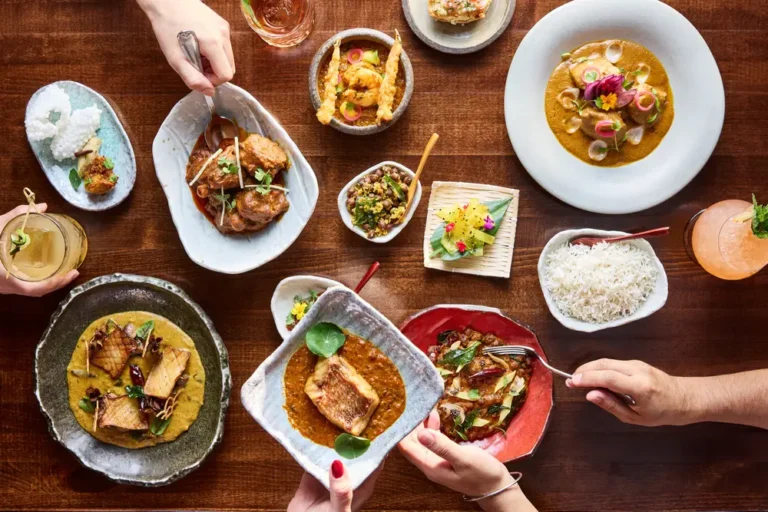Chefs share the 5 best things to order at an Italian restaurant — and 6 you should skip if you want value
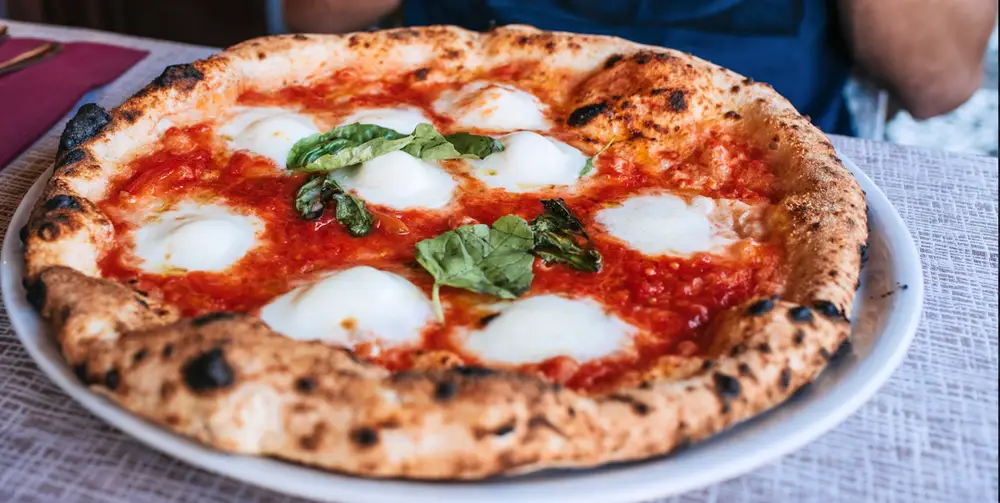
Chefs told B-17 that certain dishes, like Margherita pizza, are usually overpriced.
Many Italian restaurants serve up tasty classics, but not everything on the menu is equal.
B-17 consulted with real chefs to pinpoint which common Italian-restaurant offerings are worthy of space on your plate and which are better prepared at home — or skipped altogether because they’re a bad value.
Here’s what to order and what to avoid next time you visit an Italian eatery.
An Italian restaurant is the ideal place to get lasagna.
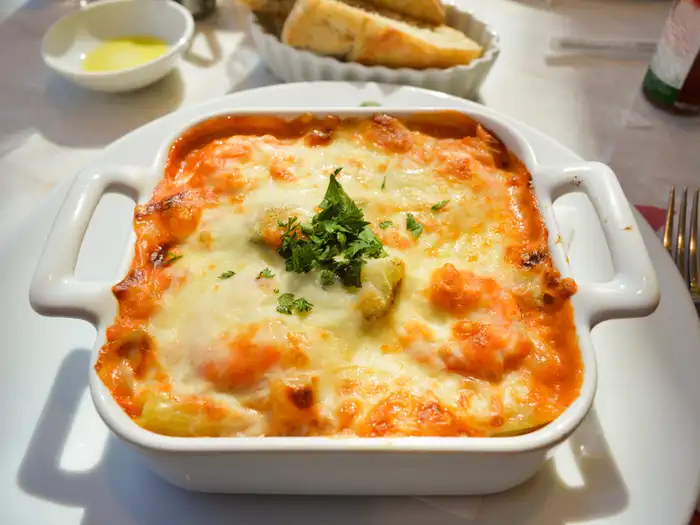
Lasagna can be time-consuming to make at home.
Personal chef and nutritionist Melissa Eboli said lasagna is an Italian staple, but it can be a real pain to make at home since it’s a layered dish made with strata of flat pasta and fillings such as meat, vegetables, and cheese.
“Lasagna is actually a very time-consuming and labor-intensive dish to make by yourself. Enjoy someone else’s preparation of it at a restaurant, as a good lasagna is worth spending money on,” Eboli said.
Unlike some more delicate Italian dishes, lasagna actually freezes and reheats very well — so don’t be shy about taking home leftovers and enjoying them the next day.
Don’t overlook handmade pasta.
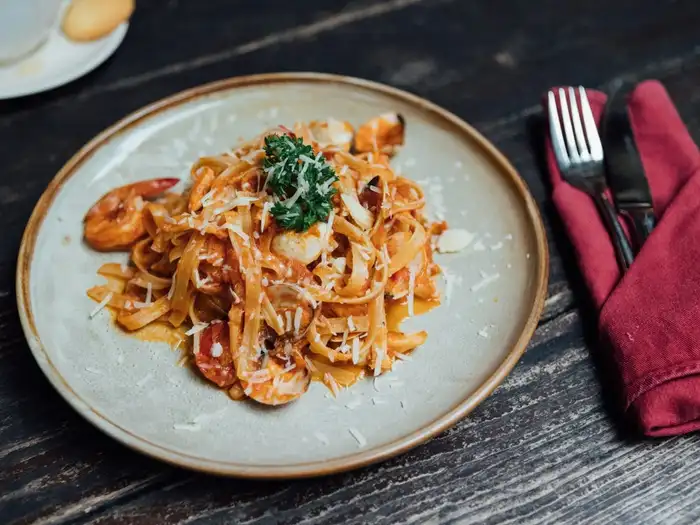
Pasta is often one of the cheapest items in the grocery store, but it tastes different when it’s made by hand.
Chef and restaurant consultant Julia Helton told B-17 that when you’re at an Italian eatery where chefs make their own pasta, you should always try to sample some.
“It’s possible to make your own pasta, but doing it regularly is a hassle. Nicer Italian restaurants have a person on staff who only makes pasta. There is nothing like freshly made pasta — it makes going back to the dried stuff really difficult,” Helton said.
The best way to appreciate handmade pasta, which is often made daily with real eggs, is to order it with a sauce that enhances rather than conceals its natural flavor.
For example, you might want to pair it with a light drizzle of olive oil or a thin tomato sauce rather than a heavy Alfredo sauce.
Ordering a braised dish is a smart way to spend your money.
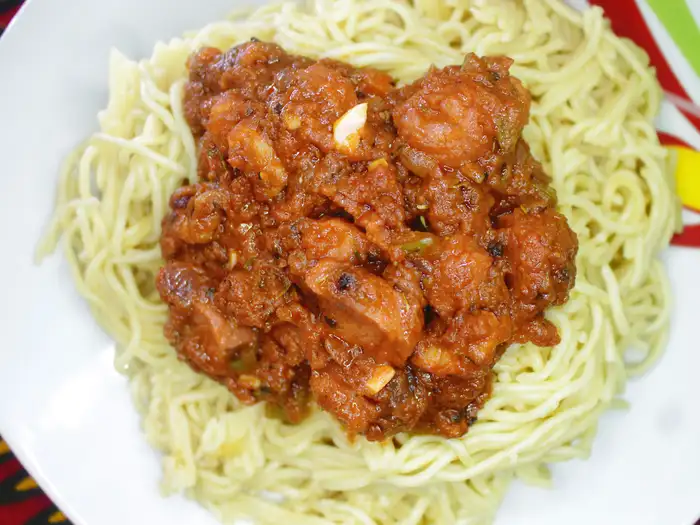
Although much of Italian cuisine can be easy to whip up at home, some meals are a bit more labor-intensive.
Second-generation Italian chef Natale Servino of Servino Ristorante in Tiburon, California, told B-17 that ordering a braised dish is a wise option because they are often quite labor-intensive to make.
Braising involves patiently searing or frying food in a pan at a high temperature before cooking it on low heat in a covered dish with a small amount of liquid.
“Braised dishes can take up to 12 hours to create. I will always order a meat sugo with a pasta or braised meats when dining out, as it’s a way to enjoy the taste of braised items without the labor of making them yourself,” Servino said.
Veal dishes like osso buco are usually worth the extra money.
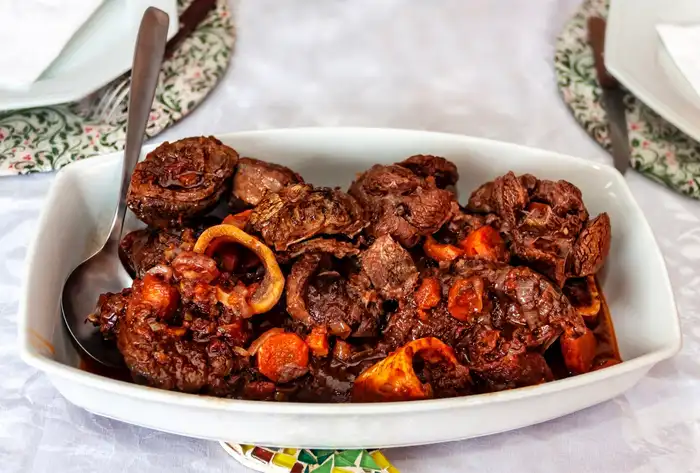
Osso buco can be challenging to make at home.
Chef and food blogger Aleka Shunk said dishes that involve veal, like osso buco, are often easier to sample in a restaurant setting than to make from scratch.
“I love ordering osso buco because veal shanks are hard to find in many local food stores. Plus, this dish takes hours to make and I often don’t have the time to spend cooking it at home,” Shunk told B-17.
Somewhat similar dishes like veal Marsala, veal piccata, and veal scallopini with mushrooms are also tasty options that would be time-consuming to create from scratch, but usually earn their lofty restaurant price tags.
Arancini are a deep-fried Italian comfort food.
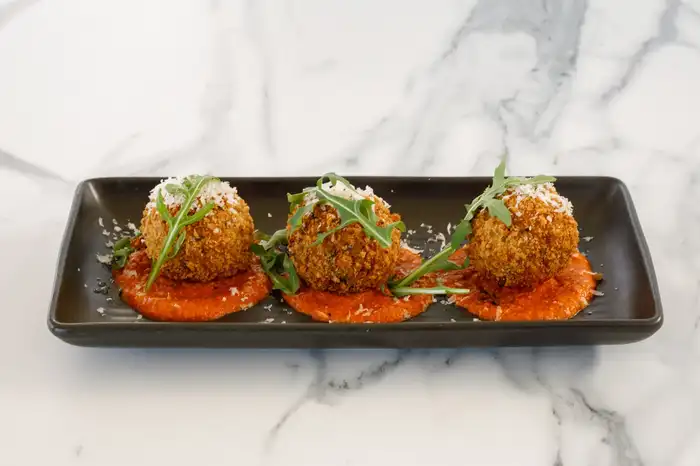
Rice balls sometimes contain meat.
“One dish I love to order at Italian restaurants is arancini. They are very time-consuming to make at home and involve frying, which I try not to do often. However, I just love them so I treat myself when I am out,” Shunk said.
Warm, savory, and often bite-sized, arancini are small rice balls that are typically stuffed with tasty morsels like cheese, peas, or ragú (a meat-based sauce).
The balls are then breaded and fried before being served hot, either alone or paired with a dipping sauce.
Although meat is a traditional arancini filling, many restaurants offer vegetarian versions that are just as tasty. And if you want an authentic Italian flavor, try to stick with fillings like caciocavallo cheese, mozzarella, al burro, besciamella, ragú, or al sugo.
On the other hand, Margherita pizza is often way overpriced for what it is.
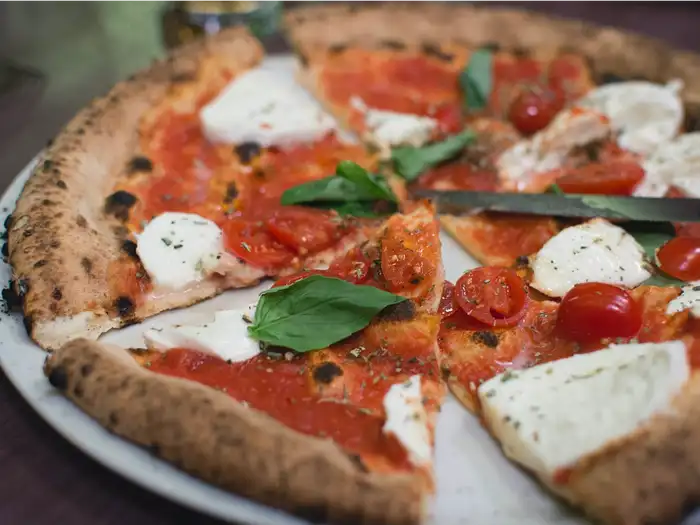
Margherita pizza is made with fresh mozzarella, tomatoes, and basil.
It’s hard to imagine that pizza could ever be a bad choice, but Helton told B-17 that Margherita pies are “a total rip-off,” and are often one of the most overpriced items on any restaurant menu.
“Stop paying for this dish,” Helton said. It’s just dough, a little sauce, a few pieces of basil, and part of a log of mozzarella.
“You’re paying $12 minimum for a dish that costs $1 to make,” Helton said. “I know because I was the executive chef at an Italian restaurant for three years, so I worked out the cost many times”
If you truly want a slice of pizza that’s worth its price tag, spring for a flavor that incorporates a few different toppings or is explicated listed as “wood-fired.” These factors can elevate a pizza beyond what you could easily whip up at home for a few bucks.
Unless tomatoes are in season, skip the caprese salad.
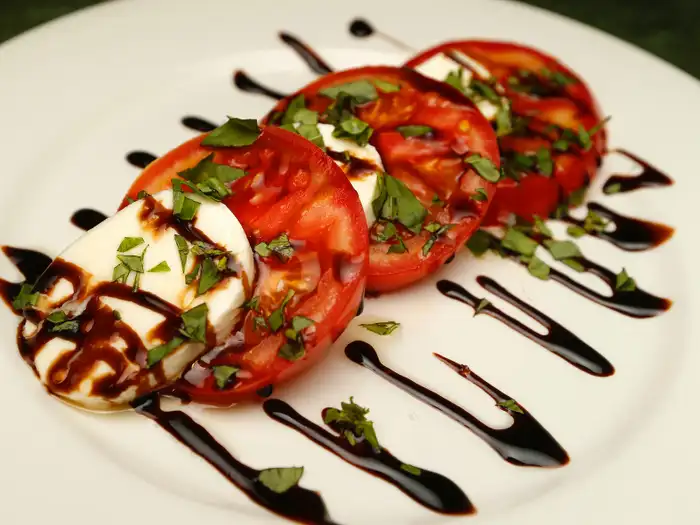
Caprese salad probably won’t be very good if the tomatoes aren’t in season.
Caprese salad is composed of thick slices of raw tomato and mozzarella, topped with fresh basil leaves and a splash of olive oil.
It’s a dish that really relies on the natural flavor of its few ingredients, which means that this salad can easily disappoint if not ordered at the right time of year.
“Caprese salad is a dish that you will find on a menu at an Italian restaurant year-round, as it is always a great seller,” Servino told B-17. “However, more often than not, the tomatoes will be out of season and lack flavor. Only order this dish if tomatoes are in season. Otherwise, skip it.”
Pass on the garlic bread unless it is served in a traditional style.
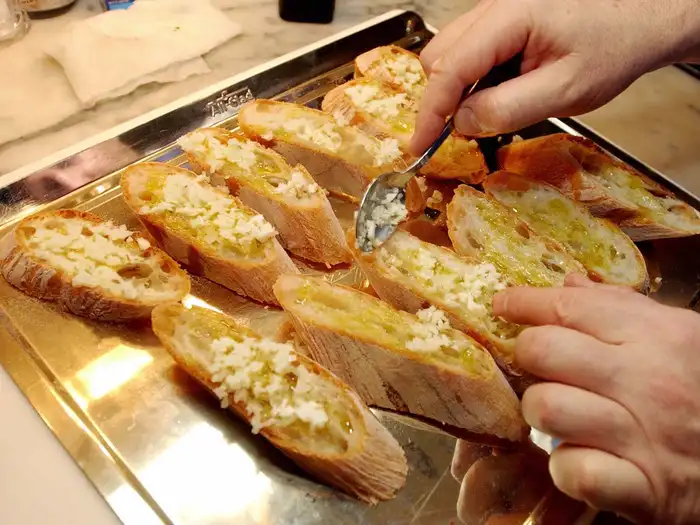
Garlic lovers may struggle not to order a basket of garlic bread, but this is one side dish that’s perhaps best prepared in your own kitchen.
Servino told B-17 that shelling out top dollar for garlic bread in an Italian restaurant is usually a bad idea.
“If the restaurant has to hide the flavor of its bread with butter and garlic, you should probably skip it. Look for fresh, homemade, or locally made bread that doesn’t have to be covered in butter and baked in order to taste good,” Servino said.
Plus, if you’re outside Italy but want an authentic dish, buttery garlic bread that’s loaded with cheese shouldn’t be a top choice.
In Italy, bread is often served hot with roasted garlic and olive oil. To get the aroma of the garlic, diners rub a crushed clove on the bread and then sparingly use oil to bring out the flavor.
Spaghetti Bolognese is another dish that is likely cheaper to make at home.
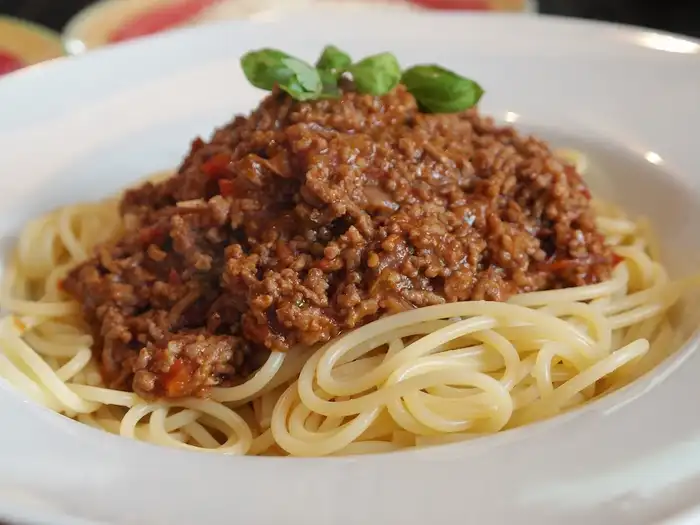
Ordering it at a restaurant may be tasty, but isn’t very economical.
“Spaghetti Bolognese is quick to prepare at home and not very complicated to whip up. It is one of those dishes that is hard to mess up or overcook because the dish uses ground beef,” said Shunk.
Making this Italian classic involves sautéing ground beef with minced garlic and onion, adding a handful of grated carrot and a can of chopped tomatoes, then simmering the mixture with a splash of beef stock for about 45 minutes.
After that, you just ladle it atop some pasta.
Unless you’re only drinking one serving, ordering wine by the glass is usually a bad money move.

A bottle often holds more pours than you think.
Getting a glass or two of wine is a great way to complement a delicious Italian meal, but ordering by the glass can inflate your bill.
“Most people will have two glasses of wine with their meal. A bottle holds four generous pours. Four glasses may cost $60, but a bottle of the same wine may only be $50,” Helton said.
She also said that if you don’t think you’ll finish an entire bottle, you can ask if it’s possible to take it home to enjoy later.
Cacio e pepe is a three-ingredient meal that’s very cheap and quick to make at home.
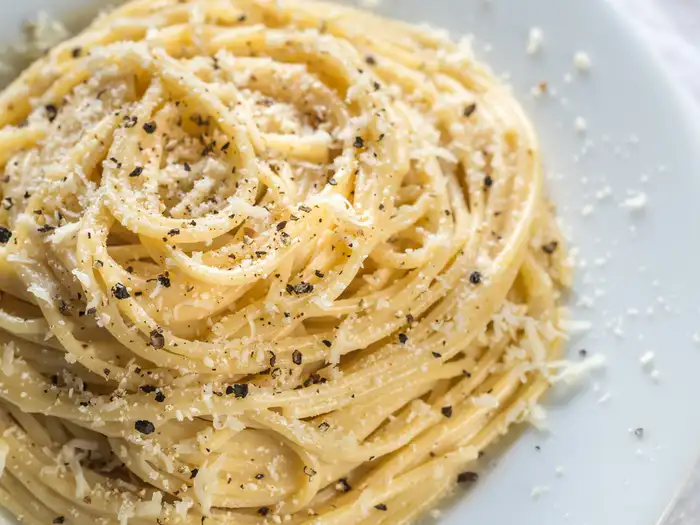
Cacio e pepe could be the most basic Italian pasta dish out there.
Cacio e pepe is made with just three ingredients — pecorino cheese, black pepper, and pasta.
And because the dish is so simple, Linda Harrell, chef and owner at Cibo e Beve in Atlanta told B-17 that diners should skip it.
“Cacio e pepe isn’t worth the money. In Italy, this dish is made when someone has no time to make a decent sauce. It’s something made for a quick meal, not a restaurant dish,” she said.

